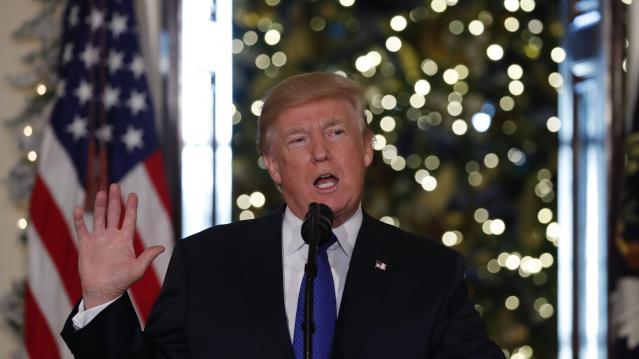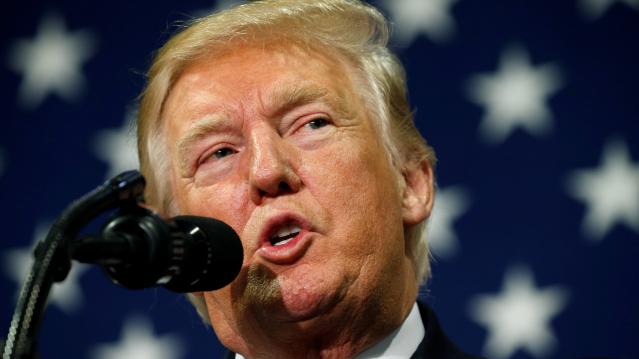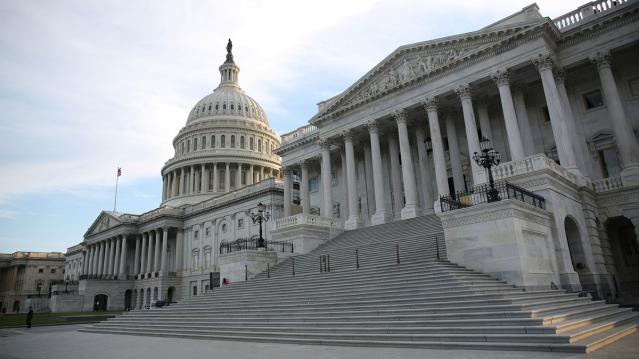Hillary Too Expensive? Get Chelsea Clinton at a Discount

If you’re turned off by the astronomical speaking fees commanded by the former Secretary of State and her former president husband, you have an option: You can go Clinton shopping.
Hillary and Bill Clinton earned in excess of $25 million for delivering 104 speeches between 2014 and the first three months of 2015, including $11 million that Hillary Clinton collected delivering 51 speeches, according to reports filed with the Federal Election Commission.
Related: Hillary Clinton’s Achilles' Heel: Trust
While Hillary’s fees varied, they typically exceeded a quarter-million-dollars a pop and went as high as $300,000, although she generally donated the funds to the Clinton family’s global foundation.
But at least one sticker-shocked university balked at her price and settled for a bargain basement alternative – daughter Chelsea Clinton.
As The Washington Post recounted on Tuesday, officials of the University of Missouri at Kansas City were in the market for a celebrity speaker to headline a gala luncheon marking the opening of a women’s hall of fame in early 2014. Initially, they thought of inviting Clinton’s 34-year old daughter to deliver brief remarks at the event.
When Chelsea’s speaking agency responded that she probably wouldn’t be available, university officials decided to “shoot for the moon” and invite her mother, the presumptive 2016 Democratic presidential candidate, to appear instead. However, they were stunned when the answer came back that Hillary Clinton indeed would be available but it would cost them $275,000.
Related: College Students Outraged over Hillary Clinton’s Massive Speaking Fees
University officials regrouped and resumed their hunt for a speaker. Then word came back that Chelsea Clinton was available to speak after all – and for the relatively modest fee of $65,000. Likely still reeling from the Hillary demand, university officials jumped at the offer.
Chelsea Clinton appeared at the luncheon on Feb. 24, 2014, and here’s what her schedule called for: a 10-minute speech followed by a 20-minute, moderated question-and-answer session and a half-hour posing for pictures with VIPs off-stage. As with Hillary Clinton’s paid speeches at universities, Chelsea Clinton directed her fee to the Bill, Hillary and Chelsea Clinton Foundation.
School officials said Chelsea’s appearance, which was covered by private donations, was well worth the money. Reactions to the story on social media were less positive, with anti-Clinton commentators having a field day mocking America’s one-time and perhaps future first family.
Can Trump Bring Democrats Along on Taxes?

Although Republicans are prepared to go it alone on tax reform, President Trump suggested creating a bipartisan working group on the topic during a Wednesday meeting with senators from both parties. Some senators were open to the idea, but it doesn’t look like Republicans have much interest in slowing down the process with in-depth negotiations. “I don’t really personally see the benefit of creating additional structure. I think we’ve got all the tools we need,” said Sen. John Cornyn (R-TX), who attended the meeting, according to Politico. Democrats appear skeptical, too. Sen. Ron Wyden (D-OR) said he told Trump that the distance between what Republicans were saying about their plan and what it actually does is a serious problem.
Where Trump Will Compromise on Tax Reform

White House officials tell USA Today’s Heidi Przybyla that President Trump will include a number of compromises to limit his tax plan’s benefits for the wealthy when he promotes the blueprint next month:
“The compromises will include ending a 23.8% preferential tax rate for hedge-fund managers, or the so-called carried interest rate, White House legislative affairs director Marc Short told USA TODAY. … Retaining parts of a state and local tax deduction that benefits many middle-class families in blue states is also an area where Trump is expecting compromise.”
Trump campaigned on raising the carried interest rate, saying its beneficiaries are “getting away with murder.” But changes to the carried interest rate may run into opposition from House Republicans, and the tweaks appear unlikely to win any Democratic support.
Larry Summers Savages Trump Tax Plan Analysis
Former Treasury Secretary Larry Summers made his distaste for the Trump administration’s tax framework clear last week when he said Republicans were using “made-up” claims about the plan and its effects. Summers expanded his criticism on Tuesday in a blog post that took aim at the report released Monday by the Council of Economic Advisers and chair Kevin Hassett, which seeks to justify the administration’s claim that its tax plan will result in a $4,000 pay raise for the average American family.
Never one to mince words, Summers says the CEA analysis is “some combination of dishonest, incompetent and absurd.” The pay raise figure is indefensible, since “there is no peer-reviewed support for his central claim that cutting the corporate tax rate from 35 to 20 percent would raise wages by $4000 per worker.” In the end, Summers says that “if a Ph.D student submitted the CEA analysis as a term paper in public finance, I would be hard pressed to give it a passing grade.”
One of the authors cited in the CEA paper also has some concerns. Harvard Business School professor Mihir Desai tweeted Tuesday that the CEA analysis “misinterprets” a 2007 paper he co-wrote on the dynamics of the corporate tax burden. Desai’s research has found a connection between business tax cuts and wage growth, but not as large as the CEA paper claims. “Cutting corporate taxes will help wages but exaggeration only serves to undercut the reasonableness of the core argument,” Desai wrote.
For Tax Reform, It May Be 2017 or Bust
National Economic Council Director Gary Cohn said Monday that tax reform has to happen this year, even if it means Congress has to stay in session longer. "I think we have a unique window in time right now, but unfortunately we keep losing days to this window,” he said. “The opportunity is now." House Speaker Paul Ryan said last week he’d keep members over Christmas if that’s what it takes. And Ryan predicted Monday that tax reform would pass the House by early next month and then get through the Senate to reach the president’s desk by the end of the year. But there are plenty of skeptics out there, given the hurdles. Issac Boltansky, an analyst at the investment bank Compass Point, told Business Insider, "The idea of getting tax reform done this year is a farcical fantasy. Lawmakers have neither the time nor the capacity to formulate and clear a tax reform package in 2017."
Do Republicans Have the Votes for the Next Step Toward Tax Reform?

Passing a budget resolution for 2018 through the Senate will open a procedural door to a $1.5 trillion tax cut over 10 years. The resolution is expected to reach the Senate floor this week, although there are questions about whether Republicans have the 50 votes they need to pass it. Sens. Susan Collins (R-ME) said this weekend that she would vote for it and Lisa Murkowski (R-AK) is likely a “yes” as well, but Sen. Rand Paul (R-TN) is reportedly a likely “no” and John McCain (R-AZ) appears questionable. Now it looks like Sen. Thad Cochran (R-MI) won't be back in Washington this week to vote on the resolution due to health problems. The Hill says Cochran’s absence puts tax reform “on knife’s edge.”
